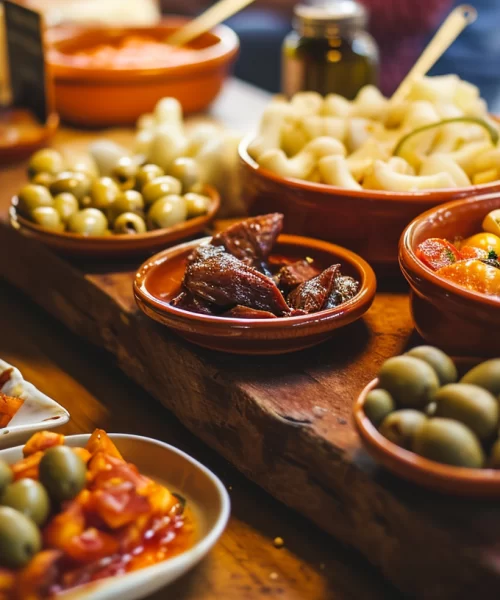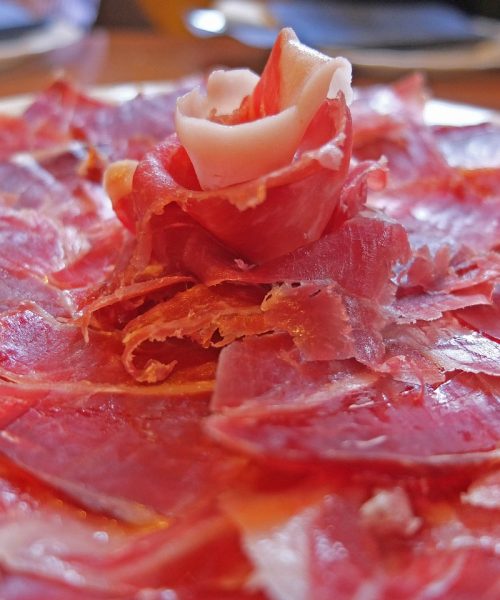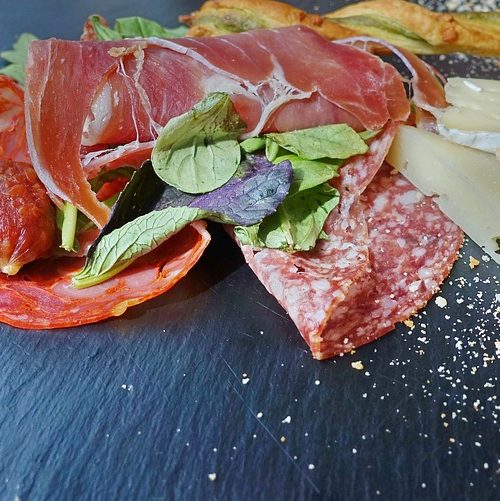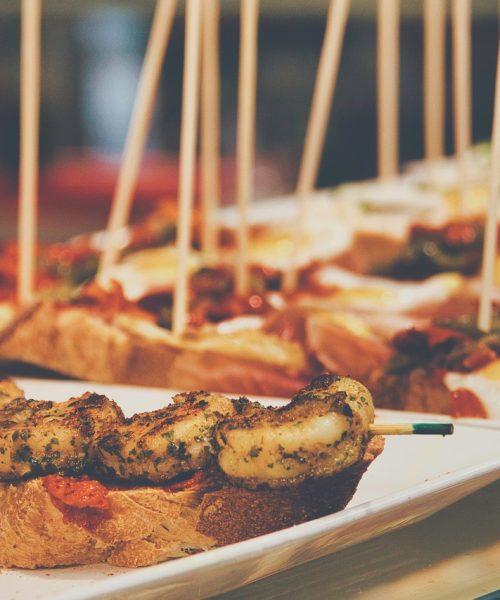Everyone knows them or has tried them before – the Spanish tapas.
But what is their origin story where do they come from?
There are many stories about the origin of tapas…
The Spanish word “tapa” means lid or cover, so one of many theories is that it dates back to an ancient custom of putting a lid on your beer glass or wine to protect it from flies or dust. To keep the lid from being blown away by the wind, an olive, a piece of ham or a slice of bread was placed on top to weigh it down.
Another story about the origin of “tapas” is that in the 13th century, King Alfonso X of Castile issued a royal directive that wine should only be served with a little something to eat. The king himself discovered the beneficial effects of small bites and wine during illness and ordered his people to do the same.
Another legend from the 16th century tells that King Philip III ordered that wine should only be served with a small meal in order to counteract drunkenness, especially among carters.
Wherever this custom has its roots, tapas are an integral part of Spanish culture with a very long tradition.
The different tapas throughout Spain are varied and varied, with the different regions of the Iberian Peninsula also being reflected in the culinary tapas. On the tapas menu, the rather cool north of Spain stands out clearly from the range of tapas from Andalusia or Madrid.
One of the Spaniards’ favorite pastimes is going out at night to share tapas with friends. “El Tapeo” refers to an evening where you have a drink and a bite to eat, and then after two or three tapas you go to the next bar. There you can enjoy a little something again. “El Tapeo” – a Spanish passion that can last all night.
Typical tapas can be peanuts, potato chips, dry fruits or olives. Roasted and salted almonds, marinated anchovies, thinly sliced serrano or bellota ham, chorizo or salchichon and or manchego cheese. Small bites that also make you thirsty for a fresh beer or a glass of wine.
More elaborate tapas dishes are, for example, the small fried fish “Boquerones” or meatballs in tomato sauce “Albóndigas con salsa de tomate”, prawns in hot garlic oil “Gambas pil-pil”, fried squid rings “Calamares” or the potato omelet “Tortilla espanola”, potato wedges in spicy sauce “patatas bravas” and so on and so on…..
just to name a few tapas classics!





